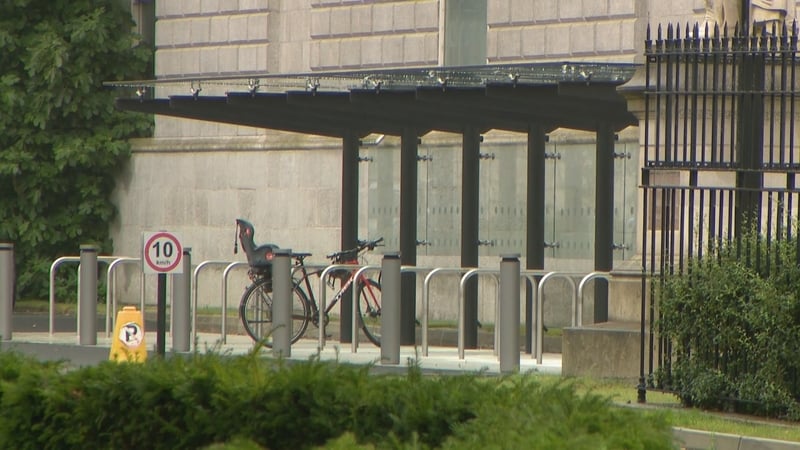A long-awaited report into the Leinster House bike shelter has found there was an “absence of some fundamental good practices”, including a value for money assessment, ahead of the project’s construction.
The conclusion is made in the Deloitte audit for the Office of Public Works, which is expected to be published later today.
The audit was sought by the Government and the OPW after Opposition outcry over the €336,000 bike shelter in the weeks leading up to last year’s General Election.
The conclusions of the report will say that there was “an absence of some fundamental good practices” in the project.
This, the audit will say, includes the “absence of a value for money assessment which would have allowed the Office of Public Works to evaluate the cost benefit” of building a covered bicycle shelter.
It said any value for money assessment should also have included a clear examination of the specific costs involved and an “option to do nothing”, which the audit says “should have been presented” to the OPW before the project began.
The report is also understood to have said some of the reasons given for the bike shelter costs were that the “fabric” of the unit needed to match “existing structures” alongside the need to “maintain city centre space standards”.
The bike shelter cost €336,000, including €284,000 spent on construction and installation, €10,000 on contract administration and €4,000 on archeological services.
The audit said: “The June 2021 decision to proceed with the Bike Shelter project was made without presentation or discussion of project costs.
“The HOC [Houses of the Oireachtas Commission] did not request cost information and the OPW did not present cost information.”
The auditors said when this happened there was a higher risk of poor value for money and “an increased risk of mismatch in expectations on delivery versus cost of delivery”.
The OPW said these findings had been accepted and that costs for works at Leinster House were now being communicated on a regular basis.
The audit also found that while the OPW had a programme management plan in place, it was “not necessarily easy to navigate” especially for smaller projects like the bicycle shelter.
It said: “Where there is a lack of oversight of projects there is a risk that these projects may not represent value for money or may not deliver to exact requirements in an efficient and effective manner.”
There was a finding made as well that some of the paperwork for the project had not been signed or dated properly.
In its findings, the internal auditors said there should be “sample-based spot checks” made to ensure compliance.
The report found more generally that the OPW’s internal auditors were not always provided timely updates or information by colleagues.
It said: “Where the [head of internal audit] is not at an equivalent level to the senior management team, there is a risk of lack of engagement from management.
“[There is also] a risk that the ARC [Audit and Risk Committee] is not receiving the appropriate assurance as to the effectiveness of the control environment within the OPW.”
The report was released by the OPW following an appeal made under Freedom of Information laws.
In an information note, they said: “The internal audit report will provide a focus for continuing to strengthen ways of working across the OPW.
“This report will provide a platform from which control improvements can be made for capital projects into the future.
“The OPW has accepted and is actively implementing all of the recommendations within the report.”
We need your consent to load this rte-player contentWe use rte-player to manage extra content that can set cookies on your device and collect data about your activity. Please review their details and accept them to load the content.Manage Preferences
Additional reporting Ken Foxe



